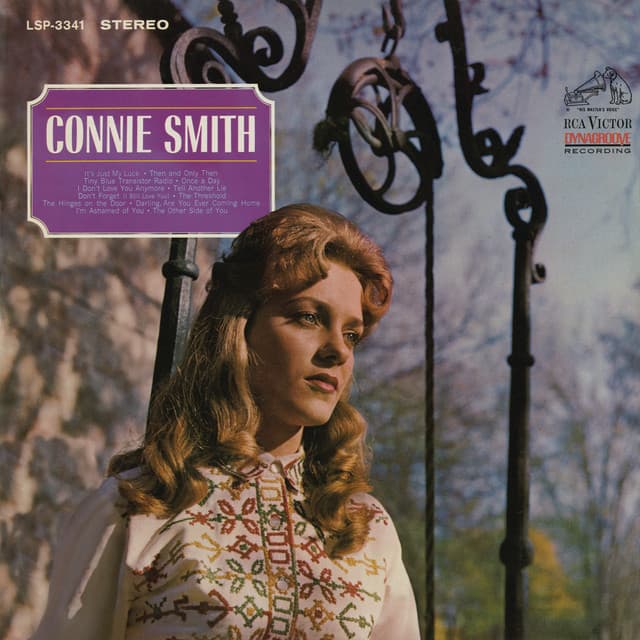
“Once a Day”: The Enduring Ache of a Love That Lingers
There are certain melodies that, once heard, become woven into the fabric of our memories, timeless and true. For many devotees of classic country, Connie Smith’s “Once a Day” is precisely that kind of song. It’s a testament to the raw, honest heartbreak that only true country music can deliver, a poignant lament of a love stubbornly refusing to fade. This masterpiece, released in August 1964 as Smith’s debut single, didn’t just climb the charts; it soared, making history in the process. “Once a Day” spent an incredible eight consecutive weeks at No. 1 on Billboard’s Hot Country Singles chart, from late November 1964 into early 1965. This wasn’t just a hit; it was a phenomenon, marking the first time a debut single by a female artist ever topped the country charts, a record that stood for nearly 30 years until Trisha Yearwood’s “She’s in Love with the Boy” in 1991. Its incredible longevity at the top also remained a record for a female solo artist for almost 50 years, until Taylor Swift’s “We Are Never Ever Getting Together” surpassed it in 2012. It was also the title track of her self-titled debut album, Connie Smith, which also reached No. 1 on the country albums chart.
The story behind “Once a Day” is as rich as its legacy. It was penned by the legendary “Whispering” Bill Anderson, a songwriter whose pen has given voice to countless country classics. Anderson had discovered Connie Smith at a talent contest in Columbus, Ohio, in August 1963. Struck by her remarkable voice—a voice described as both powerful and deeply expressive—he quickly championed her, leading to her signing with RCA Records. Anderson specifically wrote “Once a Day” for Smith, understanding the emotional depth her vocals could convey. He crafted a deceptively simple yet profoundly clever set of lyrics that perfectly captured the torment of lingering heartache. The song’s brilliance lies in its twist: the narrator claims she only cries “once a day,” a seemingly manageable burden, only to reveal in the chorus that this “once a day” is, in fact, “all day long,” and “once a night from dusk ’til dawn.”
The true meaning of “Once a Day” resonates with anyone who has ever grappled with the ghost of a past love. It’s a powerful portrayal of a heart caught in an unending cycle of grief and longing. The singer isn’t just missing someone; she’s constantly missing them, her entire existence colored by their absence. The ingenious wordplay paints a vivid picture of a woman trying to minimize her pain, perhaps even to herself, by compartmentalizing her sorrow into a single “day,” only to find that day stretches endlessly, consuming every waking and sleeping moment. It speaks to the pervasive nature of true heartbreak, how it can seep into every corner of your life, making escape impossible. It’s a raw, unflinching look at the persistent ache of a love lost, and the struggle to move forward when memories are an ever-present burden.
Connie Smith’s delivery of “Once a Day” is nothing short of iconic. Her voice, with its distinct, ringing clarity and incredible emotional resonance, imbues every word with a palpable sense of longing and despair. There’s a subtle tremor, a vulnerability in her tone that makes the listener believe every word, feeling the depth of her sorrow as if it were their own. She wasn’t just singing the words; she was living them, a quality that set her apart even at the tender age of 23 when this song was recorded. The production, guided by Bob Ferguson, embraced the emerging “Nashville Sound” with its smooth arrangements, but it never overshadowed the raw country authenticity of Smith’s vocals. The steel guitar weeps along with her, a perfect counterpart to her aching voice.
“Once a Day” stands as a foundational pillar in country music history, not just for its chart performance, but for its enduring emotional power and its pivotal role in establishing Connie Smith as one of country music’s truly great vocalists. It’s a song that continues to strike a chord with generations, a timeless reminder of how a simple phrase, when delivered with such profound honesty and artistry, can encapsulate the universal experience of heartbreak. It’s a treasure, a shimmering jewel in the crown of classic country, proving that sometimes, the simplest truths are the most deeply felt.